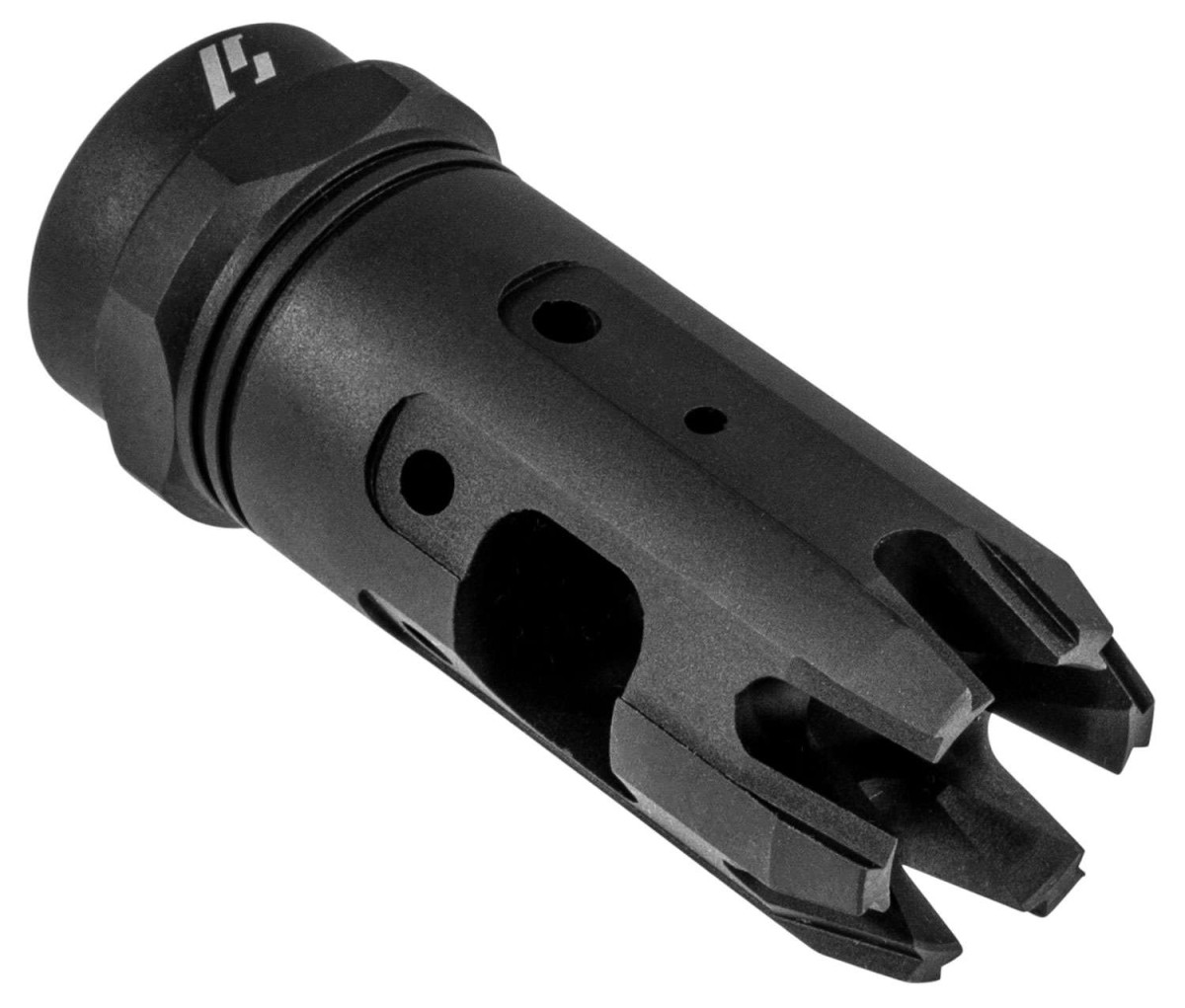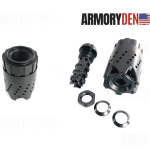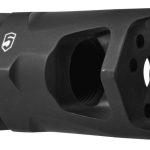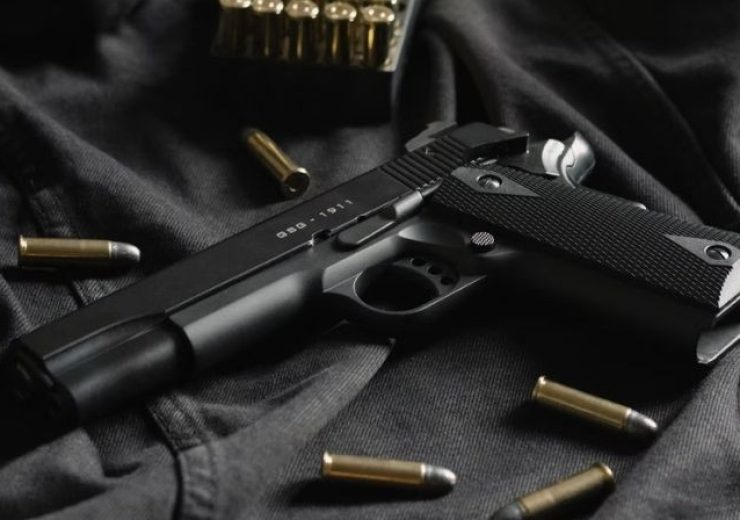
The Pros and Cons of Using a Pistol Compensator on Your Carry Firearm
Are you considering using a pistol compensator on your carry firearm? This device can help reduce recoil, muzzle flips, through forcing projected gases forward. With these benefits come potential drawbacks like an increased weight at the end of the barrel and other side effects that could interfere with accuracy or feel in hand.
Designed to reduce recoil, these devices allow for faster follow-up shots and greater accuracy during rapid-fire situations.
A key benefit of using a quality compensator is achieving optimal barrel length while minimizing bulkiness often associated with other compensating systems. In fact, compact slides equipped with an in-frame compensator provide enhanced maneuverability without sacrificing control over the firearm’s power management.
When comparing single vs. dual-port designs, you might notice that although both types effectively manage felt recoil, the latter can potentially achieve up to 55% recoil reduction compared to its counterpart at just about 35%. This significant improvement offers shooters a smoother handling experience even when firing powerful rounds through rather small pistols, something not possible without compensation technology onboard. In conclusion, adding a well-crafted 9mm pistol compensator offers more than one advantage, including reduced recoil impulse allowing for better target reacquisition after each shot fired.
An improved overall shooting experience is due largely to new innovations in the field. These innovations have made size-related drawbacks, which were typically seen before now, virtually nonexistent. As a result, they have become an increasingly popular choice among both seasoned and beginner shooters who value precision and efficiency equally.
Despite the benefits of using a pistol compensator, several drawbacks need to be considered. One notable disadvantage is increased firearm size and weight. A larger weapon can make concealed carry more challenging for some individuals.
While manufacturers innovate smaller designs, any added device will inevitably contribute mass. Another concern when employing a pistol compensator involves unorthodox shooting positions with close retention. You may encounter a gas discharge on your face upon firing.
Though this inconvenience causes minor discomfort rather than severe harm or danger, training plays an essential role in overcoming these situations effectively. Muzzle flash also pose potential problems since upwardly directed gas expels visible flashes concurrently, especially during low-light conditions. Although it’s unlikely that one shot would eliminate night vision entirely, bear in mind that excessive muzzle flash might momentarily disorient shooters who aren’t prepared for such occurrences.
Additionally, compatibility concerns arise between specific pistol models and particular compensators on the market today. Every accessory doesn’t necessarily suit all firearms uniformly across brands or design types without adjustments needed first-hand by users themselves. Before purchase, carefully check product specifications and consult industry professionals regarding installation options available should unique circumstances surface later down the line where required further assistance solving the issue presented initially.
When it comes to concealment, the benefits of using a pistol compensator on your carry firearm may outweigh the potential drawbacks. Generally speaking, adding a comp to your handgun can make controlling shots easier and improve overall accuracy during rapid-fire sequences or stressful situations.
For concealed carriers who opt for smaller handguns like subcompacts, the addition of an effective but minimal-sized compensator may not significantly impact concealability. Modern compact comps are designed with discretion in mind so that they don’t protrude excessively beyond the muzzle, making them less likely to print through clothing while carrying inside-the-waistband (IWB). With reduced muzzle flip and recoil thanks to the use of an appropriately sized compensator, shooters may find themselves better able to reacquire their target quickly after firing each round.
This leads many people towards more accurate follow-up shots with enhanced precision under stress, which plays a crucial role in self-defense scenarios where every shot counts. Furthermore, as new holsters continue to be developed specifically for compensated pistols by manufacturers following current trends in firearms technology, you’ll have incrementally improved options for concealing comp-equipped guns without sacrificing comfort or accessibility when needed most.
In summary, combining efficiency-enhancing advantages such as increased control over shot placement and stability with existing innovations in holster design can effectively reduce or eliminate potential adverse effects on one’s ability to properly achieve discreet daily concealed-carry solutions in various everyday settings and environments.
Maneuverability when holstering a pistol equipped with a compensator can be a challenge. Reputable holster manufacturers have recognized this demand and are now producing models specifically for firearms with comps. Options range from inside-the-waistband (IWB) to outside-the-waistband (OWB) varieties, but it’s essential to choose one designed explicitly for comped pistols to ensure proper fitment.
When handling a firearm fitted with an accessory such as a compensator, extra care must be taken during reholstering or unholstering. Maintaining control of the muzzle direction is essential to reduce the chances of an accidental discharge. This can help to prevent unwanted incidents from occurring due to negligence.
Users who are not properly trained should follow professional advice and take steps to guarantee everyone’s safety and the environment around them. An enhanced user experience will ultimately lead to increased confidence while using the firearm efficiently, resulting in better performance overall.
A commitment to investing time, money, and training resources proves invaluable when owning a firearm responsibly and effectively managing the potential risks associated with it. It’s important to remember to seek assistance and guidance from experts before making a purchase decision since choosing a suitable product requires a thorough understanding of individual needs and preferences, which vary significantly from person to person. Always prioritize your personal well-being and that of others by practicing safe habits and adhering to the highest standards.
Using a pistol compensator on your carry firearm has definite pros and cons. It can help reduce recoil, making it easier to get back on target quickly for follow-up shots; however, the additional weight of the muzzle device may result in increased fatigue if carried all day. Armory Den stocks linear compensators, which are designed to redirect noise away from you when shooting—an important factor for those who need their firearms as tools in close quarters or residential areas.
At the end of the day, though, deciding whether or not a compensated handgun is right for you comes down to personal preference and circumstance; you must weigh up what matters most based on your particular use case criteria.





